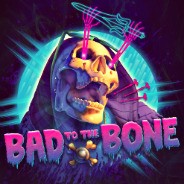Read and translate the text.
1. Leisure is time spent in non-compulsory activities. Because leisure time is free from compulsory activities such as work, study, household duties, eating and sleeping, it is often referred to as 'free time'. The ideas of leisure and leisure time are thought to have emerged in the late 19th century with the rise of mechanized industry, when the increase in productivity of labour resulted in the fact that workers had some time to spend on themselves.
They started doing sports and visiting theatres. Since then the idea of leisure time and relaxation has been popular with all the age groups and social classes. Old and young, rich and poor have been using their free time for rest and entertainment. The ways people spend their leisure time normally differ according to the age group: middle-aged and old people normally prefer more passive kind of rest like watching TV or going to the theatre, or sometimes gardening, younger people enjoy more active pastimes like doing extreme sports, visiting night clubs and discos or travelling. However, the idea of active leisure like doing sports or travelling is gaining popularity with the older people, too.
So the basic leisure time activities of the young are travelling, doing sports including extreme sports, visiting discos and night clubs or more passive ways of recreation like listening to music or watching TV and videos, and surfing the Internet. Teenagers normally prefer to do extreme sports, that is sports featuring speed, height and danger as they lead to the so-called 'adrenaline rush9 in participants. They wish to push themselves to the limits of their physical ability and fear, and push the boundaries of a particular sport, such as bungee jumping, climbing, white-water rafting, surfing, windsurfing and many others. Their tastes in music are normally different kinds of popular music associated with youth subcultures, such as hard rock, hip-hop or rap, punk rock, psychedelic rock and the like. In watching TV and videos or going to the cinema, they prefer film genres which are full of action, movement, colour, cinema effects and have a good soundtrack. They normally like action films, comedies, musicals, thrillers and cartoons.
Sometimes the ways young people spend their free time varies according to the country, as they sometimes depend on national traditions. For example, in the USA young people normally like different types of popular culture which originated in their country like blues, different kinds of rock, country music and hip hop in music and pop art in fine arts. The sports they are doing are more often than not those which originated in America like baseball, auto-racing, basketball, and board-based recreational sports — surfboarding, skateboarding and snowboarding. American youngsters are fond of eating out and eat a lot of junk food like hambuigers and cheeseburgers and drink Coca-cola or Pepsi. British youngsters are really fond of watching football matches and sorts of races such as horse-racing, boat-racing and even dog-racing, as well as playing football, rugby and golf and taking part in races. They are really fond of pets and often spend some time in the evening taking their dog for a walk. In going out for the evening, they still prefer pubs to restaurants, bars and cafes. In music, their tastes are nearly the same as those of their American peers. In Germany young people prefer drinking beer when meeting their friends and spending much time doing various sports. In Spain many youngsters, as well as older people, are fond of watching bullfighting. In France they like listening to French chanson.
2. Learn the new words from the text.
3. 3Answer the questions:
a) Why leasure time is often referred to as 'free time'?
b) When did the ideas of leisure and leisure time appear?
c) What are the basic leisure time activities of the young?
d) What are the ways young people spend their free time?
e) How does national traditions influence our leasure time?
4. Put your own headings to the paragraphs.
5. Make a list of free time activities you find most interesting.
259
487
Ответы на вопрос:
Реши свою проблему, спроси otvet5GPT
-
Быстро
Мгновенный ответ на твой вопрос -
Точно
Бот обладает знаниями во всех сферах -
Бесплатно
Задай вопрос и получи ответ бесплатно

Популярно: Английский язык
-
ответьте ОТВЕТЫ ТОЛЬКО КЛЮЧАМИ) )...
 andreevaa99516.07.2020 12:53
andreevaa99516.07.2020 12:53 -
Умоляю Чем быстрее тем лучше!!!...
 Манdarinka27.01.2023 08:24
Манdarinka27.01.2023 08:24 -
The sun (rise) in the east and (set) in the west. ...
 idkcjdosjn24.07.2022 23:13
idkcjdosjn24.07.2022 23:13 -
Прочитать на английском правильно...
 annachernoirova13.06.2022 18:09
annachernoirova13.06.2022 18:09 -
английский язык вставить слова английский язык вставить слова английский язык...
 dolgorma129.12.2022 11:40
dolgorma129.12.2022 11:40 -
с инглишом не знаю что ещё написать с инглишом не знаю что ещё написать с инглишом...
 Kristibabiba09826.11.2021 23:57
Kristibabiba09826.11.2021 23:57 -
правильно прочитать на пнглийском...
 Аэлита98719.08.2021 16:40
Аэлита98719.08.2021 16:40 -
С. надо раскрыть скобки и поставить глагол в present perfect. вот предложения:...
 treetmeh09.04.2023 00:56
treetmeh09.04.2023 00:56 -
Дополните предложения глаголами в скобках, употребив их в форме past indefinite....
 Ggggggghhhj04.01.2021 03:51
Ggggggghhhj04.01.2021 03:51 -
Ответьте на следующе вопросы к теме : london -have you been to london? -name three...
 Dispasito02.11.2022 00:45
Dispasito02.11.2022 00:45

Есть вопросы?
-
Как otvet5GPT работает?
otvet5GPT использует большую языковую модель вместе с базой данных GPT для обеспечения высококачественных образовательных результатов. otvet5GPT действует как доступный академический ресурс вне класса. -
Сколько это стоит?
Проект находиться на стадии тестирования и все услуги бесплатны. -
Могу ли я использовать otvet5GPT в школе?
Конечно! Нейросеть может помочь вам делать конспекты лекций, придумывать идеи в классе и многое другое! -
В чем отличия от ChatGPT?
otvet5GPT черпает академические источники из собственной базы данных и предназначен специально для студентов. otvet5GPT также адаптируется к вашему стилю письма, предоставляя ряд образовательных инструментов, предназначенных для улучшения обучения.
